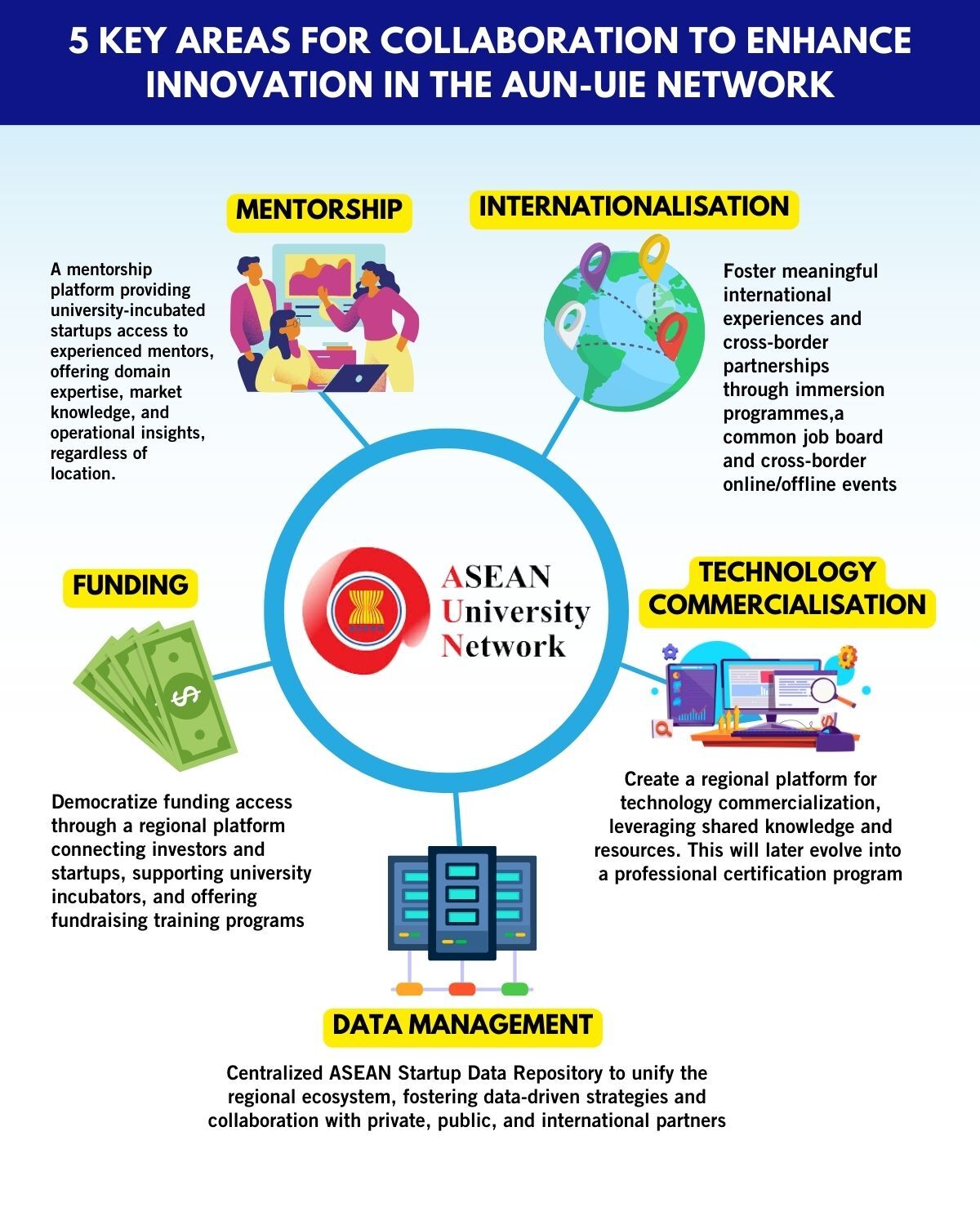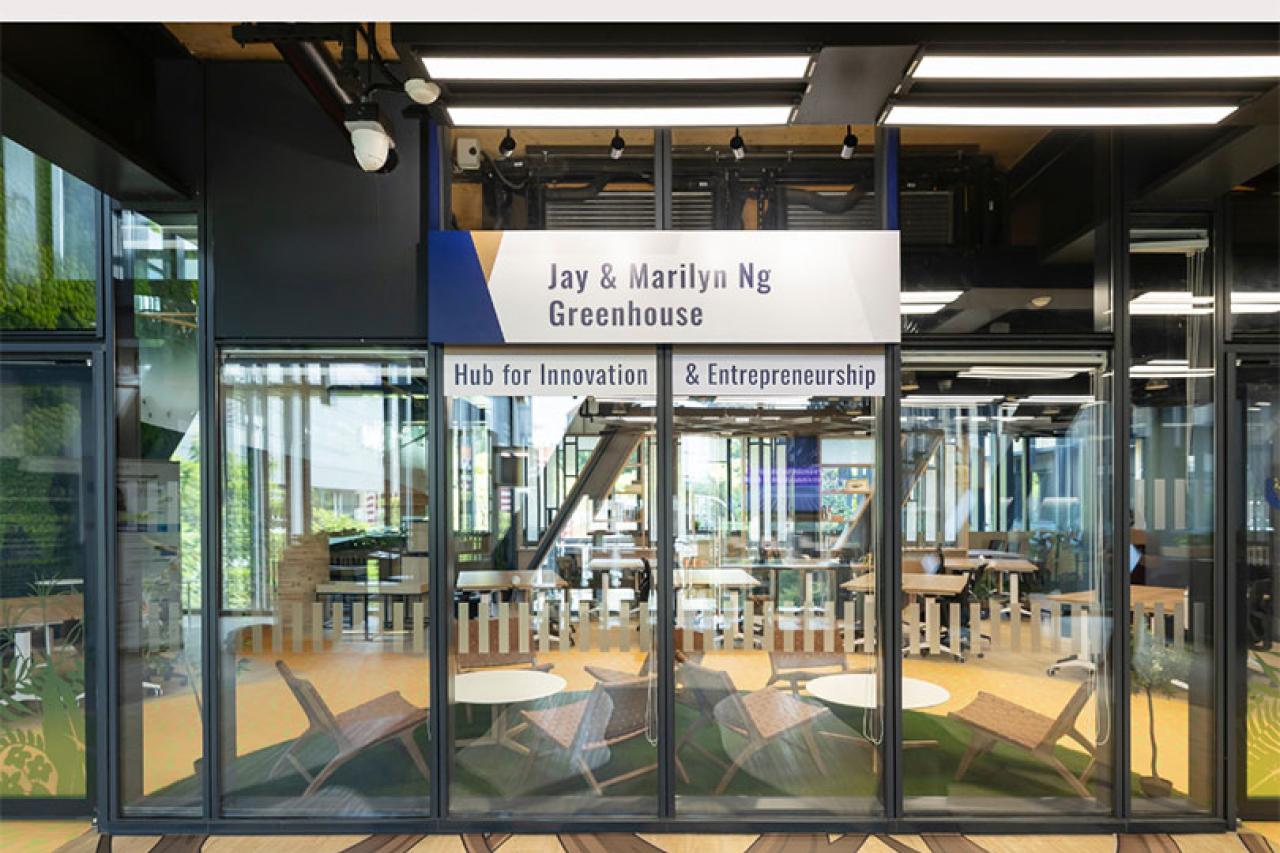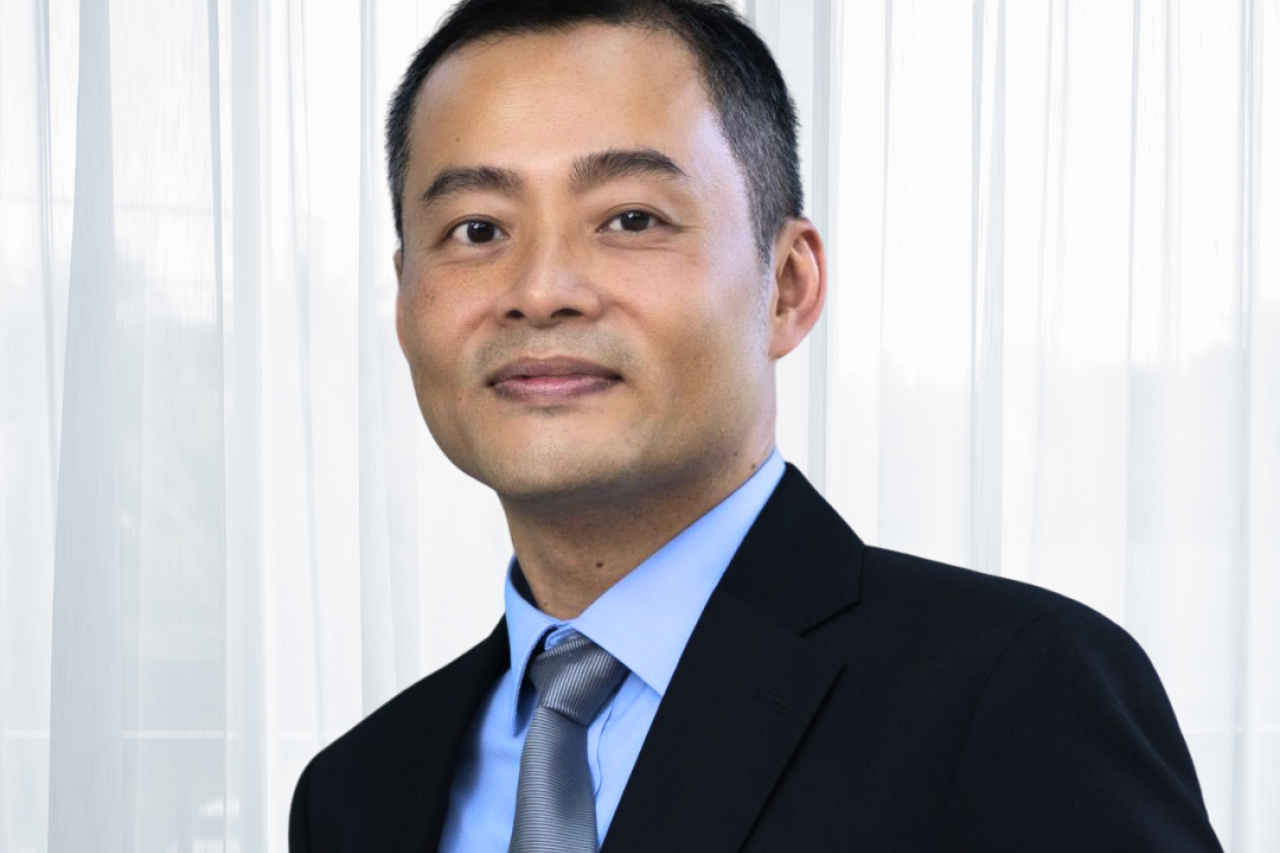ASEAN Universities are Key in Fostering the Growth of the Region’s Start-up Sector – says Singapore Management University and Chulalongkorn University in white paper
Wednesday Oct 30,2024 | IIE News
* Southeast Asia’s burgeoning regional start-up economy and strong Internet penetration rate has made it crucial for universities to more effectively nurture digital-forward workforces.
* The ASEAN University Network – University Innovation and Enterprise Network notes the need for creating regional platforms for start-ups in the region to better access funding, mentorship and knowledge transfer and commercialisation support.

With Southeast Asia’s start-up economy projected to reach a valuation of US$1 trillion next year, universities have a role working with each other and foster the growth of innovation and entrepreneurship in the digital space. This is the thrust of a white paper developed by Singapore Management University (SMU) and Thailand’s Chulalongkorn University, which outlines for the first time key trends in the region’s innovation space, as well as the increasingly critical role of universities in building regional start-up networks and nurturing entrepreneurial talent.
Titled “Catalysing Growth: State of ASEAN University Innovation and Entrepreneurship Report 2024”, the white paper will be distributed at this year’s Singapore Week of Innovation and Technology (SWITCH), to be held from 28 to 30 October 2024 at Marina Bay Sands, at the booth run by SMU’s Institute of Innovation and Entrepreneurship (IIE), a SWITCH community partner.
“Universities are naturally positioned to champion I&E in here in Southeast Asia, as the region is home to one of the world’s youngest yet most rapidly urbanising consumer base, where almost 1 in every 2 people are estimated to be youths under age 30,” said Professor Lim Sun Sun, Vice-President for Partnerships and Engagement at SMU. She is also Professor of Communication & Technology at SMU’s College of Integrative Studies.
Dr Ronnakorn Vaiyavuth from Chulalongkorn School of Integrated Innovation added, “What universities bring to the table is its network of resources to facilitate knowledge exchanges and interdisciplinary collaborations: producing local, digitally proficient graduates with an international, digitally agile mindset.”
Both SMU and Chulalongkorn University are co-leaders of the ASEAN University Network - University Innovation and Enterprise Network (AUN-UIE), a consortium of 30 higher education institutions spearheading initiatives to drive regional innovation and entrepreneurship (I&E). The white paper was first launched by the SMU Bangkok Overseas Centre in July 2024.
The paper highlights that ASEAN's digital economy has surged from US$12 billion to US$100 billion in 2023, an eightfold increase. Recognising the potential of innovation in the digital space, many local governments in ASEAN have invested in I&E to support these activities.
At the same time, 80 percent of the current regional workforce engages in informal employment, primarily at platform start-ups or digital-first enterprises. This technological pervasiveness highlights the need for entrepreneurs to master the integration of technology in businesses and sustainable digital scalability.
Producing I&E-forward graduates for long-term sustainable growth
Some of the most impactful start-up enterprises in Southeast Asia today were established shortly after their founders completed their tertiary education. These include Anthony Tan (Grab) of Singapore, Nadiem Makarim (Gojek) and Yada Piyajomkwan (Ajaib) of Indonesia.
Moreover, with the region’s workforce projected to collectively grow by 24 million people by 2030, there is a pressing need to ensure that this fresh influx of young workers not only provides the human capital to meet hiring demand — but also to better position them to meet the development needs of the start-up ecosystem.
Universities have also reported increased involvement in helping student leaders realise their start-up ideas, primarily through incubation programmes and collaborations between academic, government, and private sector partners.
SMU IIE, for instance, has nurtured over 600 start-ups through its Business Innovations Generator (BIG) incubation programme, which has raised S$613 million since its establishment. Its flagship event is the biennial university start-up competition, the Lee Kuan Yew Global Business Plan Competition, which draws top university start-up talent from across the globe, strengthening Singapore’s position as a key hub for positive I&E impact in the region.
Going forward, the AUN-UIE recognises that there is potential to build a regional university-led platform for aspiring entrepreneurs. It could offer funding, mentorship, and resources to help founders turn their ideas into businesses. Possible collaborations could include hosting jobs boards, organising webinars, and creating a platform for sharing tech commercialisation best practices.
Said Prof Lim, “In a region with a diversity of cultures, languages, and regulatory environments, regional networks such as AUN-UIE can drive efforts for entrepreneurs, investors, and stakeholders to come together, share insights, and catalyse innovation.”
Download the white paper here.





